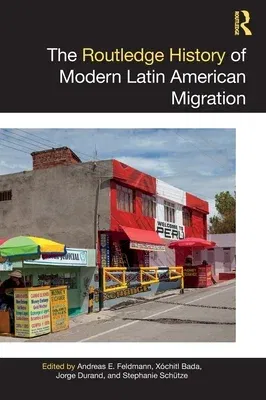The Routledge History of Modern Latin American Migration offers a
systematic account of population movements to and from the region over
the last 150 years, spanning from the massive transoceanic migration of
the 1870s to contemporary intraregional and transnational movements.
The volume introduces the migratory trajectories of Latin American
populations as a complex web of transnational movements linking origin,
transit, and receiving countries. It showcases the historical mobility
dynamics of different national groups including Arab, Asian, African,
European, and indigenous migration and their divergent international
trajectories within existing migration systems in the Western
Hemisphere, including South America, the Caribbean, and Mesoamerica. The
contributors explore some of the main causes for migration, including
wars, economic dislocation, social immobility, environmental
degradation, repression, and violence. Multiple case studies address
critical contemporary topics such as the Venezuelan exodus, Central
American migrant caravans, environmental migration, indigenous and
gender migration, migrant religiosity, transit and return migration,
urban labor markets, internal displacement, the nexus between organized
crime and forced migration, the role of social media and new
communication technologies, and the effects of the COVID-19 pandemic on
movement. These essays provide a comprehensive map of the historical
evolution of migration in Latin America and contribute to define future
challenges in migration studies in the region.
This book will be of interest to scholars of Latin American and
Migration Studies in the disciplines of history, sociology, political
science, anthropology, and geography.

